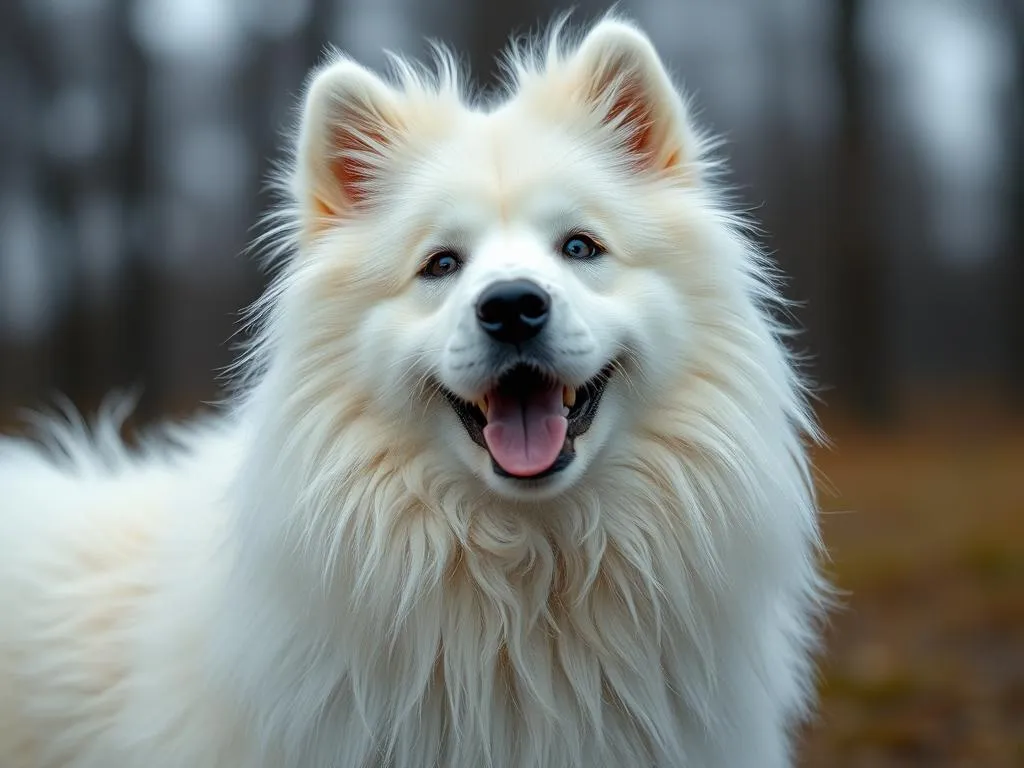
Samoyeds are a delightful breed known for their striking appearance and friendly demeanor. With their fluffy white coats and bright, smiling faces, they capture the hearts of many dog lovers. However, for first-time dog owners, it’s crucial to consider whether a Samoyed is the right fit for your lifestyle and experience level. This article will explore the Samoyed breed, their care requirements, training needs, and whether they make a suitable choice for novice dog owners.
Understanding the Samoyed Breed
Origin and History
The Samoyed breed has a rich history that dates back thousands of years. Originating from Siberia, these dogs were bred by the Samoyedic people for herding reindeer and pulling sleds. Their ability to endure harsh Arctic climates made them invaluable companions for their human counterparts. Over time, they transitioned from working dogs to beloved family pets, thanks to their friendly nature and adaptability.
Physical Characteristics
Samoyeds are medium to large-sized dogs, typically weighing between 50 to 65 pounds. They have a strong, sturdy build with a broad head and erect, triangular ears. Their most distinguishing feature is their thick, fluffy white coat, which serves as insulation against cold weather. Grooming is an essential aspect of caring for a Samoyed, as their double coat requires regular brushing to prevent matting and manage shedding.
Temperament and Personality
Generally, Samoyeds are known for their friendly, playful, and social personalities. They thrive on companionship and often form strong bonds with their families. Samoyeds are known to be good with children and can be quite protective of their loved ones. Their playful nature means they enjoy games and activities, making them a joy to have around.
Samoyed Care Requirements
Grooming Needs
Owning a Samoyed comes with grooming responsibilities. Their thick coat requires brushing at least two to three times a week, with daily brushing during shedding seasons to manage loose fur. Bathing is necessary only every few months or as needed, as frequent bathing can strip their coat of essential oils. Regular grooming not only keeps their coat healthy but also provides an opportunity to bond with your dog.
Exercise and Activity Level
Samoyeds are active dogs that require ample exercise to stay healthy and happy. A daily walk of at least 30 to 60 minutes is essential, along with playtime to keep them mentally stimulated. Activities like hiking, running, or engaging in dog sports can help meet their exercise needs. If not given enough physical activity, Samoyeds can become bored and may develop undesirable behaviors.
Diet and Nutrition
A balanced diet is critical for a Samoyed’s health. High-quality dog food formulated for their size and activity level is recommended. It’s essential to monitor their weight, as Samoyeds can be prone to obesity. Feeding practices should include portion control and regular feeding times to establish a routine. Consulting with a veterinarian for specific dietary recommendations is always a good idea.
Training a Samoyed
Basic Training Principles
Training a Samoyed requires patience and consistency. Early socialization and basic obedience training are vital to ensure they grow into well-adjusted adults. Positive reinforcement methods, such as treats and praise, work best with this breed. Establishing clear boundaries and routines can help them understand what is expected of them.
Behavioral Challenges
While Samoyeds are generally good-natured, they can present challenges for first-time dog owners. Common issues include stubbornness and separation anxiety. To overcome these challenges, it’s essential to remain consistent with training, provide plenty of socialization opportunities, and gradually acclimate them to being alone. Engaging them in interactive toys can help alleviate boredom when you’re not home.
Samoyeds and First-Time Dog Owners
Is a Samoyed Right for You?
Before deciding if a Samoyed is the right dog for you, consider your lifestyle and home environment. They thrive in active households where they can be included in family activities. If you have a yard to play in, that’s a bonus! However, if you work long hours or prefer a more laid-back lifestyle, a Samoyed may not be the ideal fit.
Pros of Owning a Samoyed as a First-Time Owner
One of the primary advantages of owning a Samoyed is their friendly and social nature. They tend to get along well with children and other pets, making them excellent family dogs. Their protective instincts also mean they can serve as wonderful companions, alerting you to any unusual activity around your home.
Cons of Owning a Samoyed as a First-Time Owner
Despite their many positive traits, owning a Samoyed comes with challenges. Their high grooming needs and exercise requirements can be demanding for first-time owners who may not be prepared for the commitment. Additionally, their independent nature can lead to potential difficulties in training and behavior management.
Tips for First-Time Dog Owners Considering a Samoyed
Preparing Your Home
Before bringing a Samoyed into your home, ensure you have the necessary supplies. Essential items include a sturdy leash, a comfortable bed, food and water bowls, grooming tools, and toys for mental stimulation. Creating a safe and welcoming environment is crucial, so consider puppy-proofing your space by removing hazards or items that can be chewed.
Finding a Reputable Breeder or Rescue
If you decide to adopt a Samoyed, finding a responsible breeder or rescue organization is essential. Look for breeders who prioritize health testing and provide a nurturing environment for their puppies. Adoption can also be a rewarding option, as it gives a Samoyed a second chance at a loving home. Consider visiting local shelters to meet potential companions.
Building a Support Network
Connecting with other dog owners and trainers can be incredibly beneficial for first-time Samoyed owners. Joining local dog clubs, attending training classes, or participating in online forums can provide valuable insights and support. Ongoing education about dog care, training techniques, and breed-specific needs can help you become a more informed and confident owner.
Conclusion
In summary, is a Samoyed good for a first-time dog owner? The answer depends on your lifestyle, commitment, and willingness to invest time in grooming, exercise, and training. Samoyeds are friendly, social, and protective, making them wonderful companions for the right owner. However, their care requirements and potential behavioral challenges may not suit everyone. Before making a decision, take the time to assess your personal circumstances and ensure you can meet the needs of this beautiful breed. With proper care and love, owning a Samoyed can be a deeply rewarding experience.









